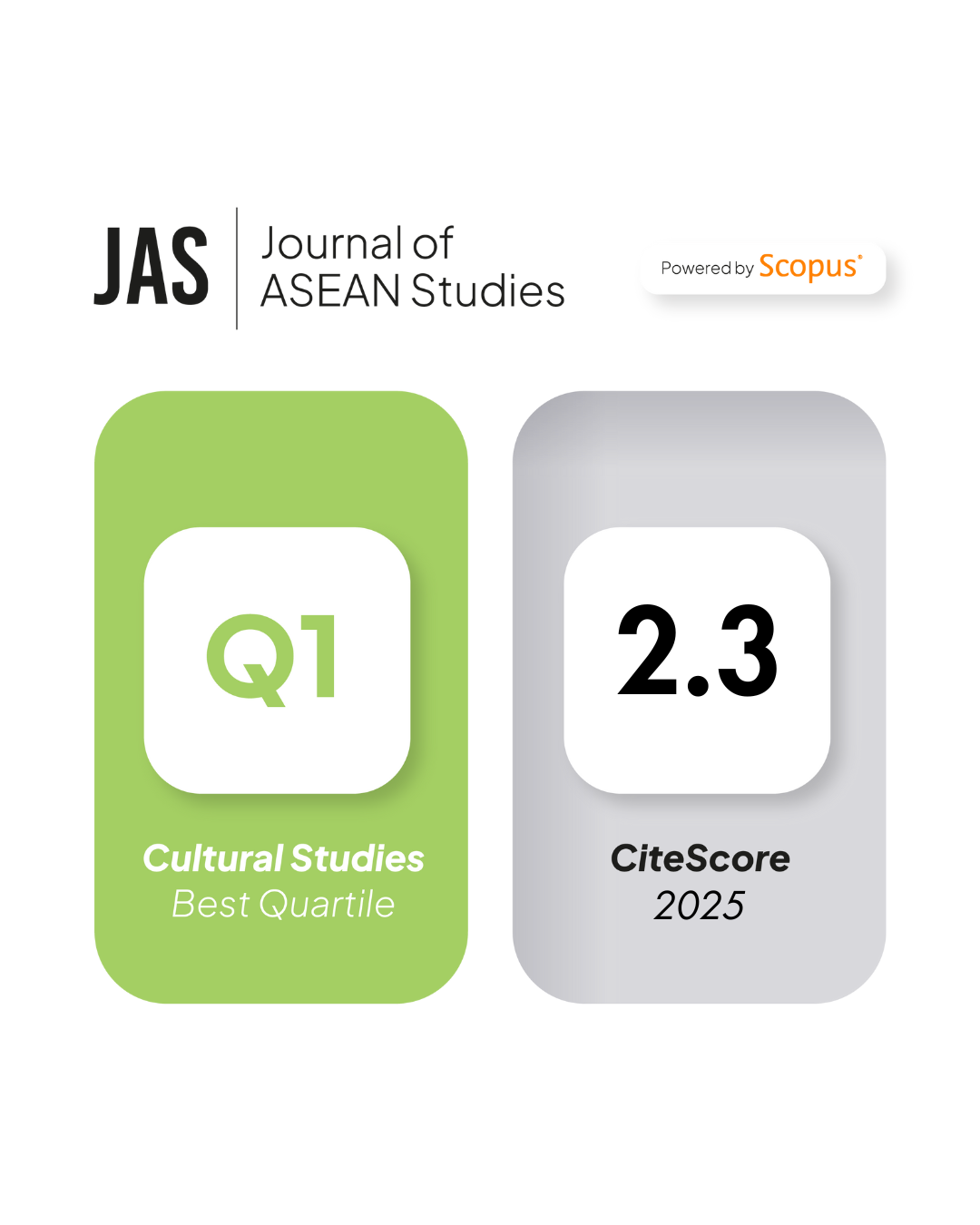Macroeconomic Determinants of Auto Sales in ASEAN: An Empirical Study in Five Major ASEAN Countries
DOI:
https://doi.org/10.21512/jas.v8i2.6621Keywords:
automotive, exchange rate, gross domestic product, inflation, interest rateAbstract
This research examines the determinants of car sales in ASEAN countries. The research concentrates on five macroeconomic variables (consumer price index, gross domestic product (GDP) per capita, changes in gross domestic product per capita, foreign exchange rate, and interest rate). The total sample is 12 years of automobile sales in five ASEAN countries from 2005 – 2016. The five ASEAN countries are Indonesia, Thailand, Malaysia, Singapore, and Vietnam. This paper used the multilinear regression method with Statistical Package for the Social Sciences (SPSS) software to test the research model. For interest-rate variables, we used a lag of one year. The empirical results show that the previous period for inflation, gross domestic product per capita, interest rate, and the foreign exchange rate significantly influenced on car sales in five ASEAN countries. The growth of GDP per capita does not influence car sales.
References
Albors-Garrigos, J., Frass, A., Schoeneberg, K. P., and Signes, A. P. (2017). Impact of national cultures on automotive after sales services perception: The case of German premium cars in China. Management: Journal of Sustainable Business and Management Solutions in Emerging Economies, 22(2), 13-27. https://doi.org/10.7595/management.fon.2017.0014
Altaf, S. N. and Hashim, N. A. (2016). Key factors influencing purchase intentions towards automobiles in Pakistan. Paradigms, 10(1), 14-22. https://doi.org/10.24312/paradigms100102
ASEAN Secretariat and the World Bank. (2015). ASEAN Services Integration Report: A Joint Report by the ASEAN Secretariat and the World Bank. http://documents1.worldbank.org/curated/en/759841468178459585/pdf/100637-Revised-WP-PUBLIC-Box393257B-ASEAN-Report-web.pdf
Bach, T. M., Machado, A. M., Kudlawicz-Franco, C., Martins, T. S. and Da Veiga, C. P. (2017). Monetary policy and the automotive retail performance in Brazil. Journal of Business and Retail Management Research, 11(2), 79-93.
Bernama. (March 3rd, 2019). Automotive industry contributed 4.3 pct to GDP in 2019 — MITI. Malaysia Investment Development Authority. https://www.mida.gov.my/home/10097/news/automotive-industry-contributed-4.3-pct-to-gdp-in-2019-—-miti/
Chakraborty, M. S., and Chattopadhyay, A. (2019). Validating structure conduct performance model in passenger vehicle segment of Indian automobile industry. Pramana Research Journal, 9(4), 96-106. https://www.pramanaresearch.org/gallery/prj-p663.pdf
Chifurira, R., Mudhombo, I., Chikobvu, M., and Dubihlela, D. (2014). The impact of inflation on the automobile sales in South Africa. Mediterranean Journal of Social Sciences, 5(7), 200-207. http://dx.doi.org/10.5901/mjss.2014.v5n7p200
Chouksey, P., Deshpande, A., Agarwal, P. and Gupta, R. (2018). Sales forecasting study in an automobile company – A case study. Industrial Engineering Journal, 10(12), 35-40. https://doi.org/10.26488/IEJ.10.12.85
Demiroglu, U. and Yunculer, Ç. (2016). Estimating light-vehicle sales in Turkey. Central Bank Review, 16(3), 93-108. https://doi.org/10.1016/j.cbrev.2016.08.003
Gaddam, C. J. (2016). Analysis of growth of exports and geographic concentration of automobile industsry in India. Productivity, 57(1), 59-67.
Günşen, İ. (2015). Automotive industry: Economic effects of foreign direct investments in Turkey. Uludağ Journal of Economy and Society, 34(2), 19-34. http://www.uludag.edu.tr/dosyalar/iibfdergi/genel-dokuman/2015_2/ASL02.pdf
Gusev. A. S., Omelchenko V.S., Panova E.T. and Prokudin D.A. (2018). Analysis the prospects of the new cars sales market development in Russia. International Transaction Journal of Engineering, Management, & Applied Sciences & Technologies, 9(5), 393-400. https://doi.nrct.go.th//ListDoi/listDetail?Resolve_DOI=10.14456/itjemast.2018.35
Industri otomotif berkontribusi 10,16 persen kepada perekonomian nasional. (March 28th, 2018). Ministry of Industry of The Republic of Indonesia. https://kemenperin.go.id/artikel/19008/Industri-Otomotif-Berkontribusi-10,16-Persen-Kepada-Perekonomian-Nasional
Islam, R., Ghani, A. B. A., Kusuma, B. and Hong, E. T. Y. (2016). An analysis of factors that affecting the number of car sales in Malaysia. International Review of Management and Marketing, 6(4), 872-882.
Jayaraman, K., Arumugam, S., Kumar, K. M., and Kiumarsi, S. (2018). Factors influencing the purchase decision of non-national cars in Malaysia: An empirical study. Global Business and Management Research, 10(1), 150-162.
Johan, S. (2019). Macroeconomic Determinants of Automobile Sales in Indonesia: An Empirical study in 1986-2016. Binus Business Review, 10(3), 159-166. https://doi.org/10.21512/bbr.v10i3.5712
Kaya, A., Kaya G., and Cebi, F. (2019). Forecasting Automobile Sales in Turkey with Artificial Neural Networks. International Journal of Business Analytics, 6(4), 50-60.
Kemal, Ç., Erkan, O., Muhsin, D. E. and Ömer, Ö. (2015). Factors influencing consumers’ light commercial vehicle purchase intention in a developing country. Management & Marketing, 10(2), 148-162. https://doi.org/10.1515/mmcks-2015-0012
Lee, H. Y, and Kang, H. H. (2015). The effects of the global financial crisis on automobile demand in China. International Journal of Economics and Finance, 7(9), 226-236. https://doi.org/10.5539/ijef.v7n9p226
Pant, A. and Nidugala. G. K. (2016). Macro determinants of car in Indian banking sector. Journal of Developing Areas, 51(2), 59-70. https://doi.org/10.1353/jda.2017.0031
Patra, T. and Rao, M. J. (2017). Impact of macroeconomic factors on automobile demand in India. Journal of International Economics, 8(1) 97-113.
Pilat, D. (2016). Determinants of exchange rate risks in the automotive industry. Master Degree Project in International Business and Trade, University of Gothenburg. Thesis.
Maikaew, P. (January 7th, 2019). Automotive industry ata a turning point. Bangkok Post. https://www.bangkokpost.com/auto/news/1606570/automotive-industry-at-a-turning-point dated October 14.
Nawi, A. S., Ahmad, S. A. B., Mahmood, W. M. W., Nair, G. K. S., Nurathirah, A. S., and Hamid, B. A. (2013). Determinants of passenger car sales in Malaysia. World Applied Sciences Journal, 23, 67-73. https://www.idosi.org/wasj/wasj23(eemcge)/13.pdf
Wen, T. C. and Noor, N. A. M. (2015). What affects Malaysia consumers’ intention to purchase hybrid car? Asian Social Science, 11(26). 52-63. http://dx.doi.org/10.5539/ass.v11n26p52
Yagi, M. and Managi, S. (2016). Demographic determinants of car ownership in Japan. Transport Policy, 50. 37-53. https://doi.org/10.1016/j.tranpol.2016.05.011
Zeng, Y., Schmitz, H. and Madlener. R. (2018). An econometric analysis of the determinants of passenger vehicle sales in Germany. Institute of Future Energy Consumer Needs and Behavior (FCN) 6/2018, School of Business and Economics/E.ON.
Downloads
Published
How to Cite
Issue
Section
License
Copyright (c) 2020 Suwinto Johan

This work is licensed under a Creative Commons Attribution-NonCommercial 4.0 International License.


























